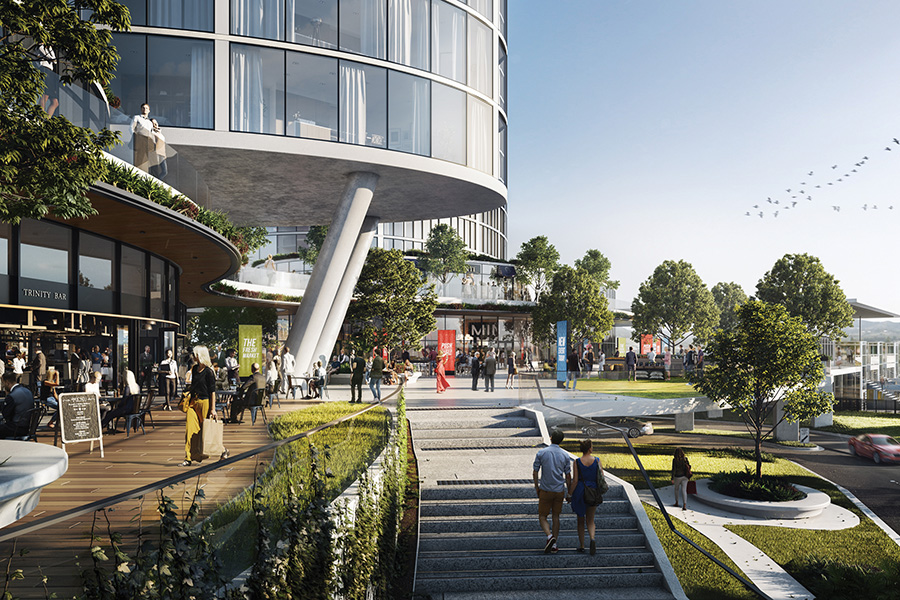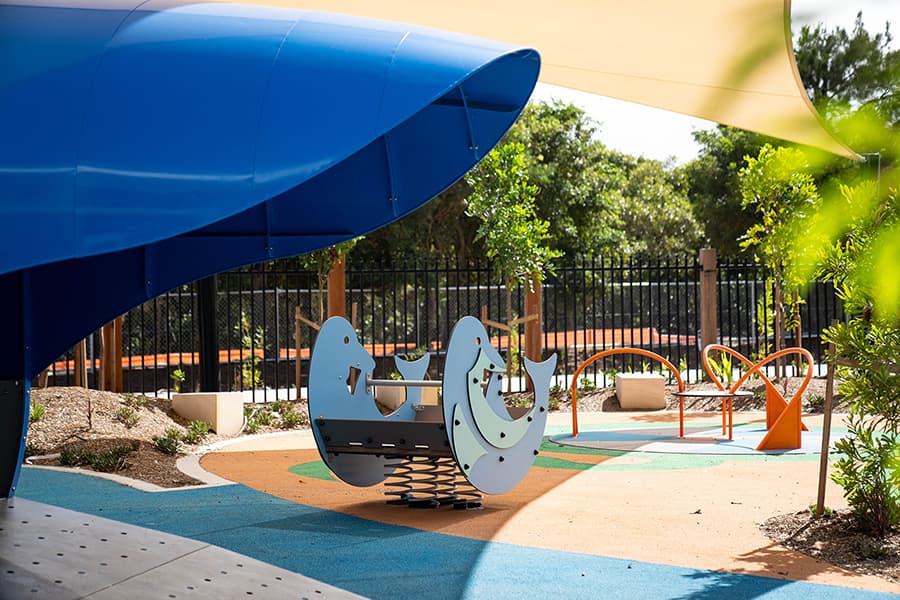Forget the Baby Boomers, Generation X, Millennials, even Gen Z – the next shapers of our shopping centres are the Alphas – those born between 2010 and 2025. Don’t think that’s too far in the future, some of them are about to reach double figures!
Those in the industry have heard the same ‘hottest retail trends’ for a few years now; it’s all about experiences, niche offerings, personalisation, omni-channel, social media integration and the introduction of new technologies like virtual and augmented reality. But the truth is, these supposedly hot trends are dangerously close to becoming outdated. Retail is an ever-changing beast, continually adapting to the changing needs of its customers. So, for shopping centres to stay ahead of the game, we need to look beyond the current trends and start looking much further into the future.
We need to imagine what shopping centres might look like in 10, 15 or even 20 years from now.
Of course, predictions are never an exact science – we don’t have access to a crystal ball that can accurately predict the future. What we can do, however, is examine current trends and trace them back to their roots. By understanding how and why these trends have emerged, we can then use this knowledge to make an educated guess about what new opportunities we may create in the future.
Millennials and their influence on shopping centres today
Retail’s shift towards experiences, digital offerings and social media integration hasn’t happened by accident – Millennials have had a huge influence on shaping the shopping centres of today. But the reason isn’t as simple as chalking it up to a generation of iPhone enthusiasts. Although technology plays a huge part in the way Millennials live, work and interact with brands, what makes Millennials unique actually dates back to before the ubiquitous adoption of smartphones.
Take the experience trend, for example. If you trace this back to its roots, it actually comes down to the way millennials were educated. A couple of decades ago, the school model was transformed to make education more experiential; a concept that has been replicated across early childhood centres, primary schools, high schools and universities who mostly now base their design around activity-based learning. Even commercial workplaces are being redesigned for a workforce that now craves constant experience and constant change. Couple this with the fact that Millennials have also spent their formative years on smartphones, are used to being able to access everything they want, when they want, and can comfortably communicate with each other via various forms of technology; it has created a generation of tech savvy, highly demanding consumers that have ultimately turned the retail industry on its head.
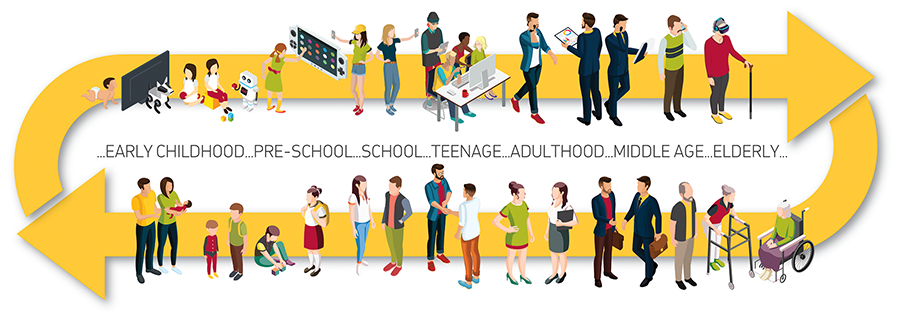
So if today’s retail trends can be traced as far back as Millennials’ primary school experiences, it makes sense that the secrets to the shopping centre of the future lie hidden among the generation entering pre-school and primary school today.
Generation Alpha – an emerging generation
According to futurist Mark McCrindle, the newest generation of children – those born between 2010 and 2025 – will be known as Generation Alpha. With an estimated 2.5 million Alphas born globally each week, this emerging generation is expected to be the most educated and technologically connected generation in history. In fact, a large majority of Alphas have a digital footprint before they’re even born, with photos of Alpha babies in utero shared in abundance via their parents’ social feeds. Alpha toddlers are consuming media, connecting with family, and even drawing and learning via tablets and smartphones. Meanwhile, Gen Alpha primary school children are being educated in some of the most highly connected, tech-enabled classrooms we’ve ever seen.
So, what affect will all this have on the retail trends of the future? If the m\Millennials’ offspring continue in their parents’ footsteps and continue to be avid consumers of technology, the future will be very sci-fi indeed. But if there’s one thing history has taught us; children tend to rebel against their parents’ way of doing things. And if that’s the case, what values will Generation Alpha hold dear as they come of age 10-15 years from now?
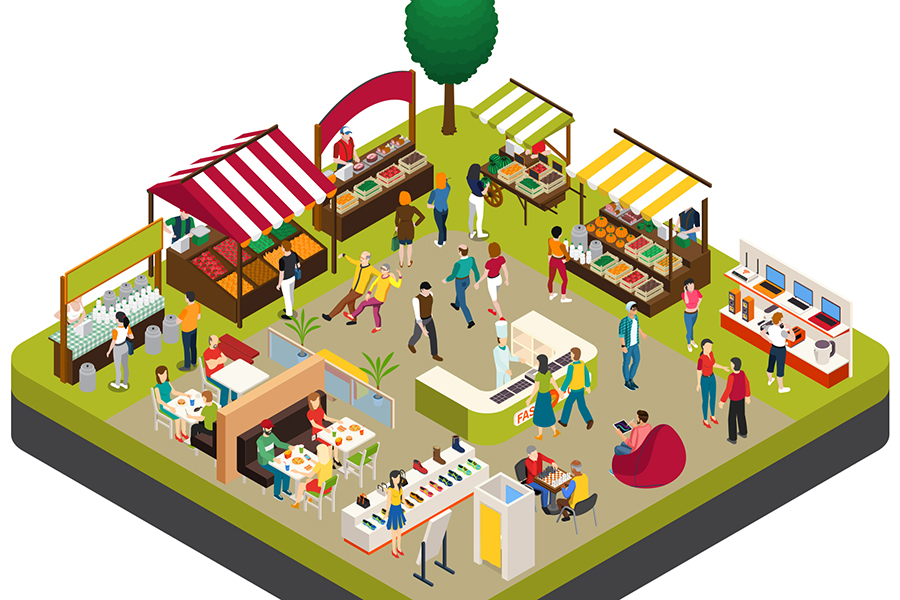
A return to simpler times
Perhaps Generation Alpha will reject their parents’ proclivities for social media over-sharing; railing against the idea that their personal information was made so public without their permission.
Perhaps the Alphas babies who grew up looking at their parents’ heads buried in a smartphone will grow up resenting the devices they’ve been competing for attention with all their lives. Perhaps instead, they’ll place more value on eye contact and genuine human connections.
Perhaps these digital natives will have a different relationship with technology altogether. It’s not to say they’ll reject it entirely – it’s likely that technology will remain a core part of their lives. But if their Millennial parents were digital gluttons, perhaps Gen Alpha will instead look to ‘Marie Kondo’ their tech; stripping away the clutter and only keeping essential apps or devices that genuinely spark joy.
Much in the same way the 1970s hippies rebelled against their parents’ post-war consumerism, is it so far-fetched to imagine that Gen Alphas – children who have had a digital footprint since before they were born – will look for a simpler life with less digital dependence and more real life social interaction? Add to this a growing focus on the environment, we can surely expect the next generation to be climate aware consumers with a keen focus on sustainability and the circular economy.
And if that is indeed the case, how will this tech savvy, environmentally conscious generation who crave real human connections over Insta-worthy experiences shape the shopping centre of the future?
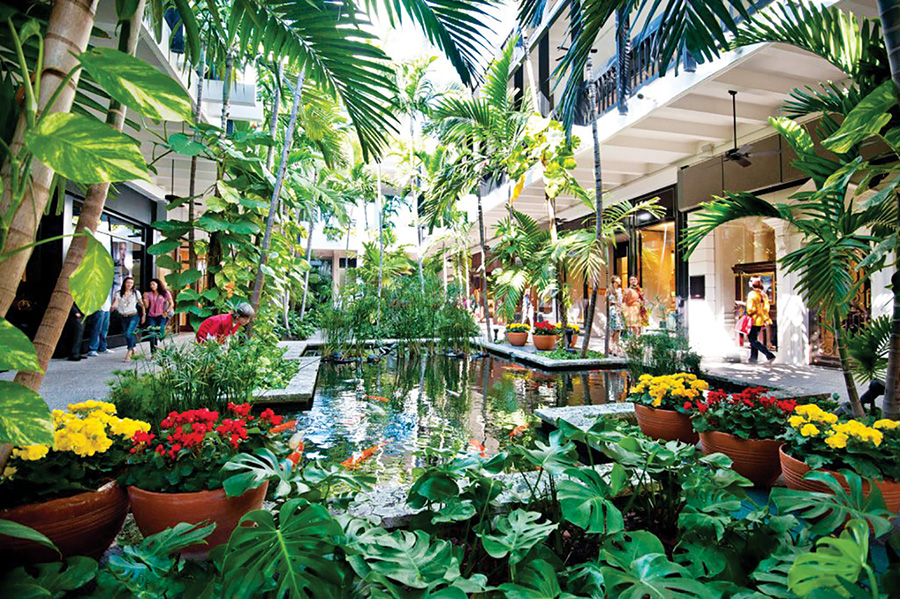
Shopping centres as the modern-day village
When considering a shopping centre that caters to the core values of Generation Alpha, I imagine a centre that is more like a modern-day village; a community hub with more flexibility in its offering.
It’s a place with community gardens, where shoppers can grow and pick their own fruit and herbs; a place with outdoor spaces that harmoniously blend technology and nature. It’s a place where people meet friends to socialise and connect; a place to be slow, to be mindful. A place that will reinstate a sense of village and belonging and bring communities closer together.
Of course, online shopping will be par for the course for Generation Alpha and, as such, retailers won’t require anywhere near as much floor space. Large department stores will downsize over the years, eventually becoming boutique storefronts, while the majority of stock is stored off-site in warehouses. And because of this, shopping centre owners will need to look at new ways to fill space and diversify their offering.
We’ll see co-working spaces seamlessly integrated into shopping centre precincts, so workers can also make the most of the outdoor spaces and community gardens. We’ll see residential accommodation – perhaps even retirement centres – seamlessly built within the shopping centres of the future. No longer ostracised and isolated, we could imagine a place where elderly relatives could be very much included at the centre of these modern communities, making it easier for family members to visit while doing their weekly shop. And of course, spaces could be used for corporate functions, events, weddings – a whole host of alternative revenue streams for centres who no longer need to fill every square metre with retail amenities.
Additionally, with a growing focus on the circular economy, it’s a very real possibility to imagine recycling facilities becoming an integrated activity within shopping centres themselves. No longer a requirement to take computers to one place and printer cartridges to another – recycling will be completely transformed to become an easy part of our daily routine as we work towards creating a more sustainable future.
For Generation Alpha, shopping centres won’t simply be a place to shop. And they certainly won’t be a place to eat beautiful meals for the vapid purpose of sharing photos on Instagram. For Generation Alpha, their shopping centre will be a community hub where they buy their groceries, visit a boutique shopfront, meet family and friends, spend time in the community garden and maybe even get some work done. It will be a modern-day village where work, play, and social interaction is all found within the one place; a place that will bring people closer together, where they can have positive, real life experiences.
The reality
The truth is, while we don’t know for sure what the future will bring, we do know that current trends in modern-day retail have largely been driven by the insatiable appetites of Millennials. It’s logical then to assume that the next generation, the children of these digitally connected Millennials, will have as much, if not more, of an impact on retail trends as their parents once did. And if we pay attention now to the way Generation Alphas are raised, and truly understand what is most important to them, we can then begin to imagine what kinds of things they might want to see in their shopping centres of the future.




